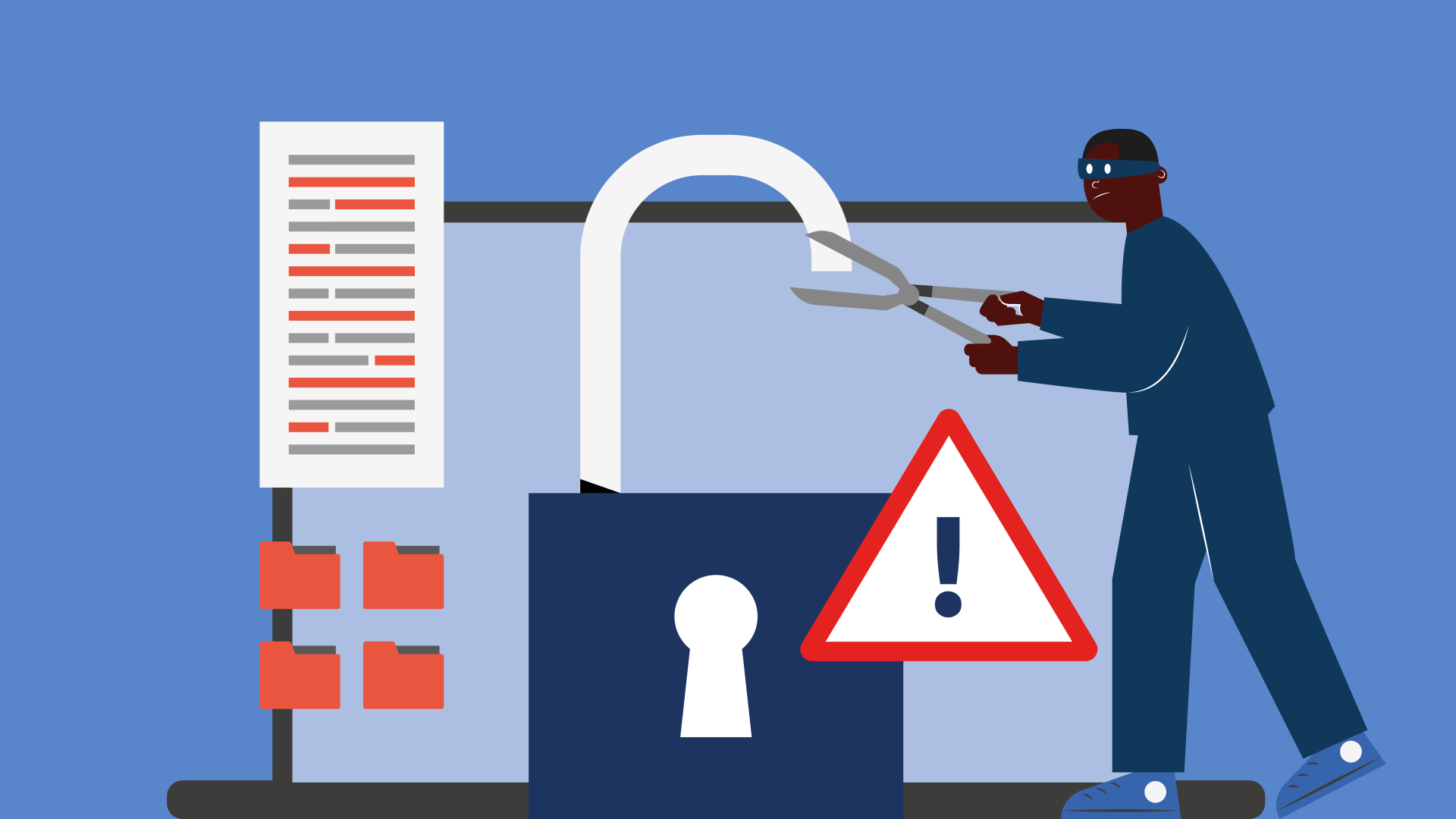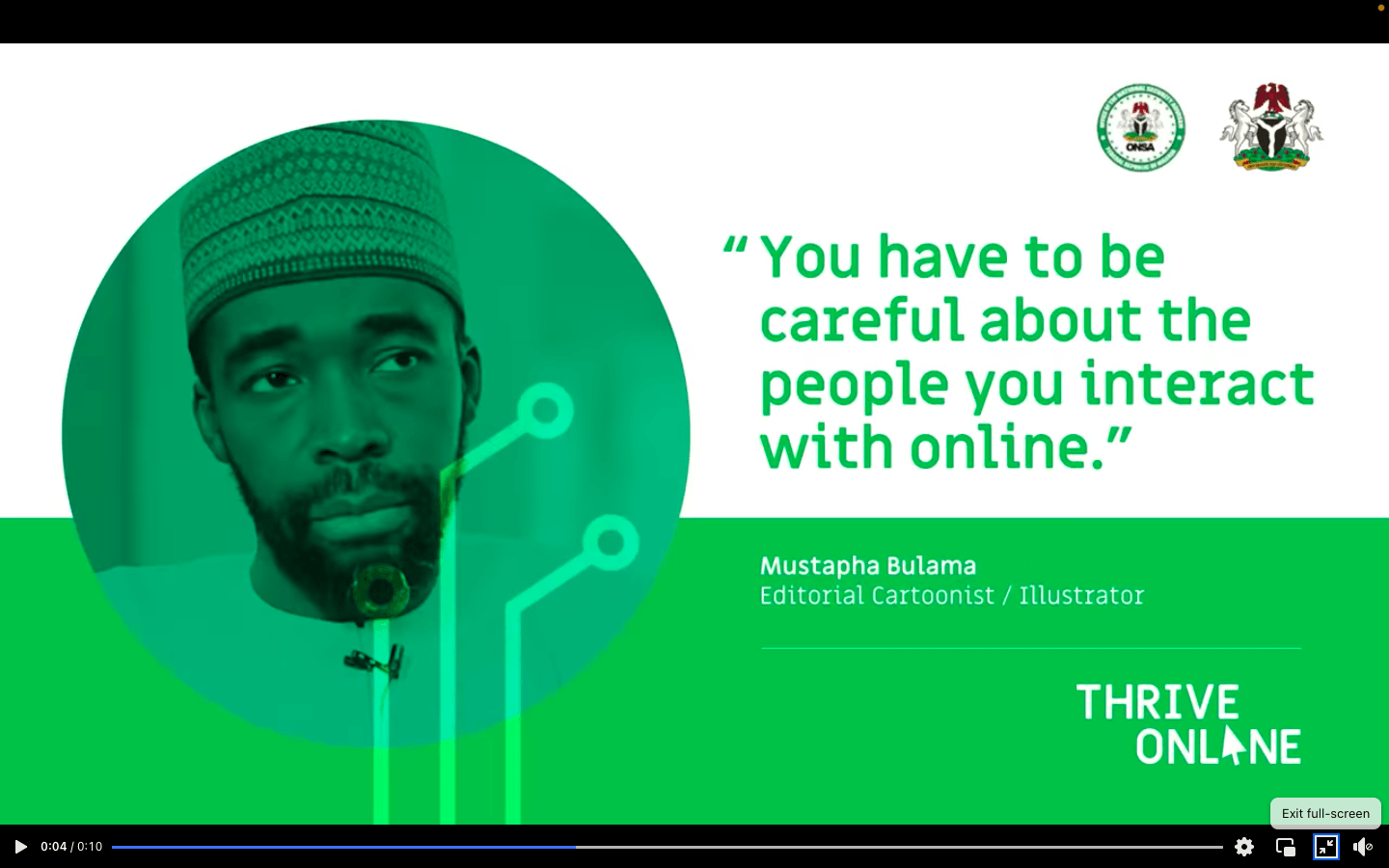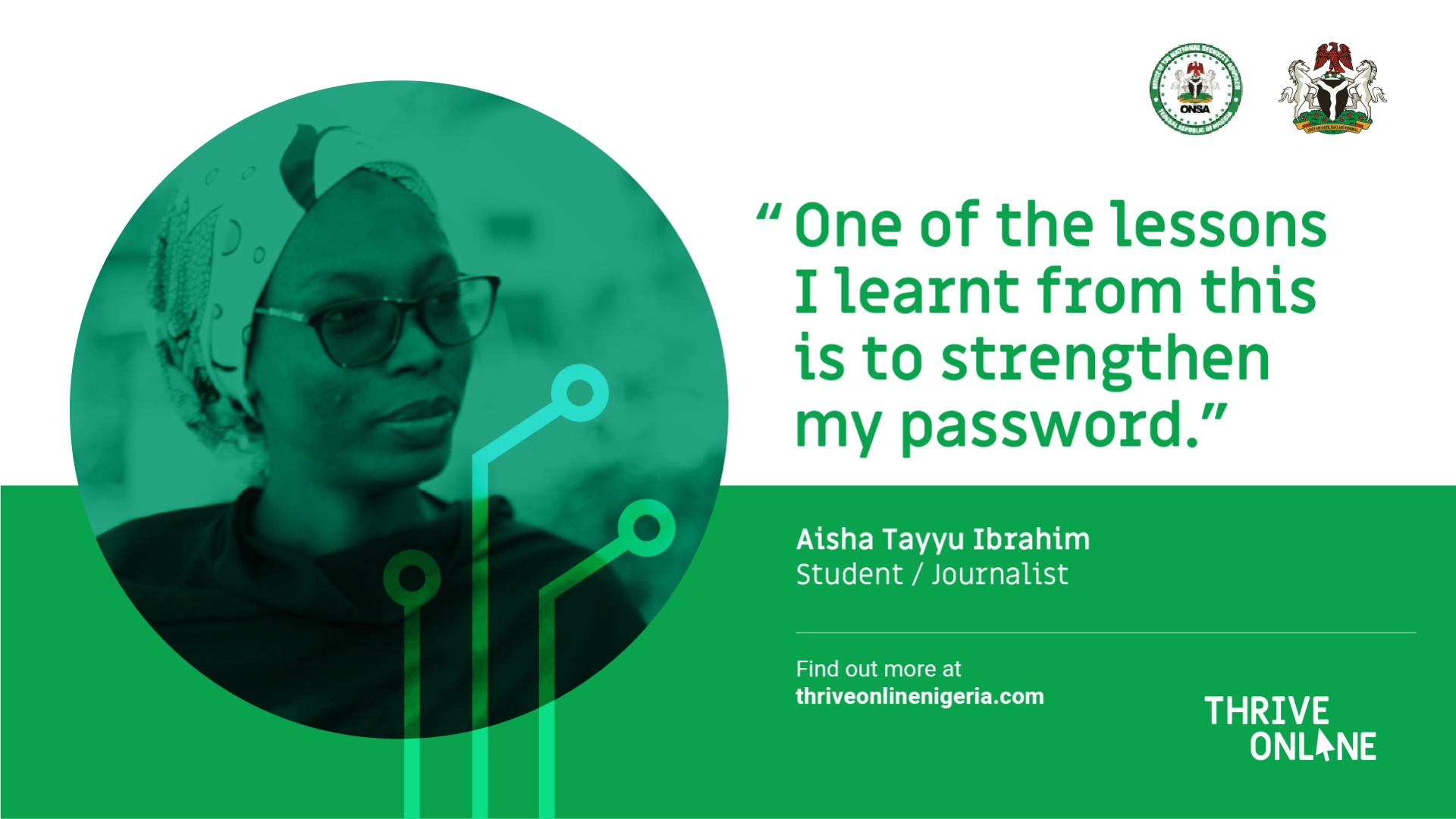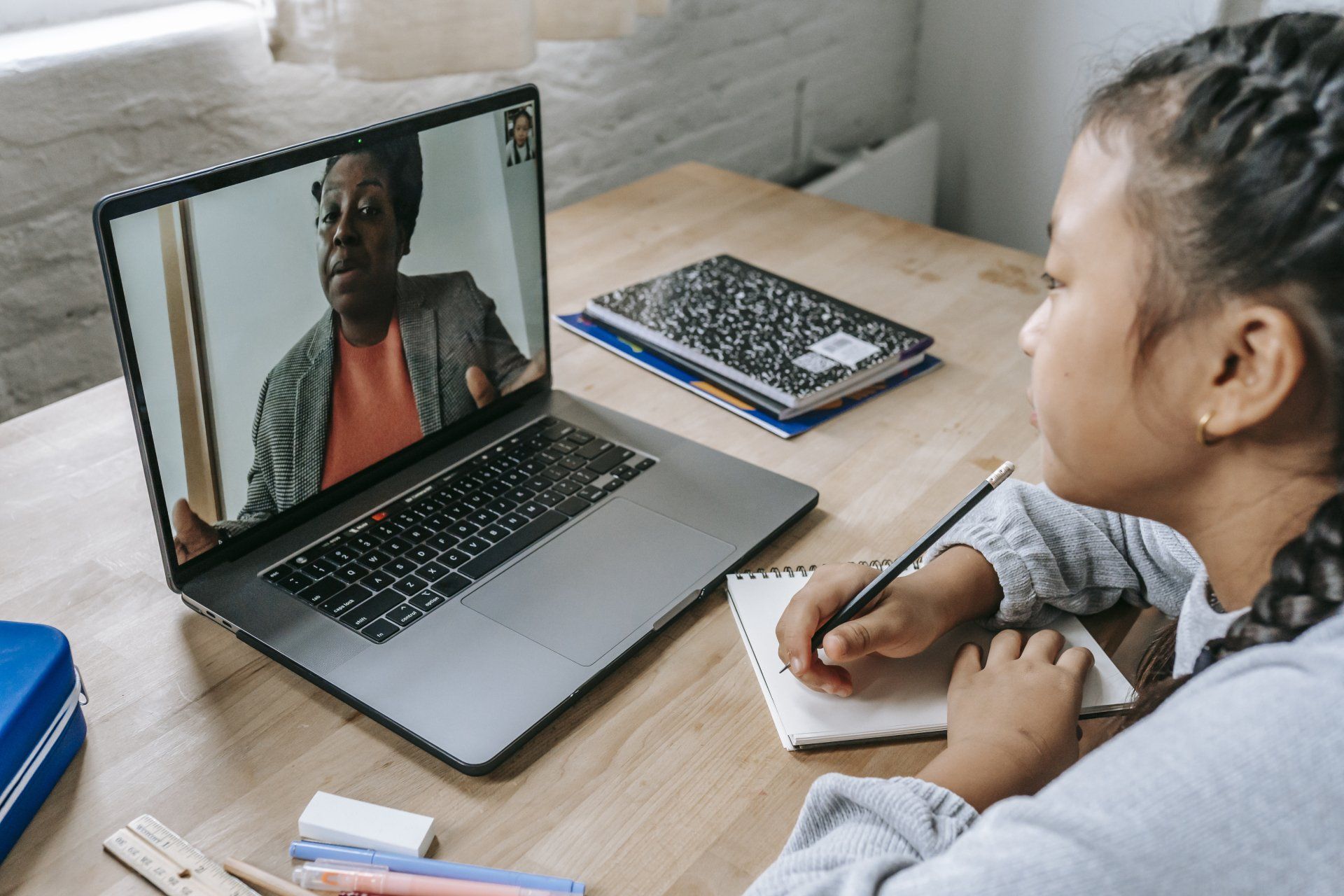An Educational Experience
Uche’s story: an educational experience
When Uche Idu was asked to produce a series of films for the Thrive Online campaign, he found it to be an eye-opening experience.
The Abuja-based videographer and content creator was recently commissioned to produce six short films to raise awareness of the dangers of cybercrime – and the simple steps that can be taken to avoid becoming a victim. The stories he captured had a profound effect on the man behind the camera, much to his surprise.
“I hadn’t realised how widespread these issues were,” explains Uche. “It seems like everyone knows someone who’s been affected by social media hacks, bank account hacks, online scams and so on. That’s when I realised that some of the weird things I’d seen online, on Facebook for example, were the scams that people were now telling me about. I’d never fallen for them or clicked on them – but neither had I put two and two together. Now, because of the stories I filmed, I know what these are!”
Despite the widespread nature of the issues Uche wanted to cover, finding willing interviewees was tricky. Perhaps somewhat ashamed by what had happened, it appeared that few people wanted to revisit how they’d been caught out and for their stories to be broadcast. Of those who did come forward, most had experienced being locked out of their social media accounts.
“I found it incredible to realise that people could actually do this to other people,” Uche continues. “In our first film, I interviewed Babati Anas, a spoken work artiste whose Instagram account was hacked, causing him to lose all the content he’d built up on there. Then there was the cartoonist, Mustapha Bulama. Someone makes him an offer through Facebook to help promote his work, he goes along with it and then ‘boom’, that’s it, all his work is gone, all his followers. He has to start again from scratch.”
“The idea that there are people out there willing to do this; to hack your account and then demand money to unlock it again – it really got me thinking. It made me think about my own accounts, my own business, the brand I’ve built up and all its followers. It could all be taken away in an instant. That’s why we must learn to protect ourselves better.”
Thrive Online’s practical tips for protecting yourself in cyberspace have already paid off for Uche. With two-factor authentication in place, he was warned recently of someone trying to access his Gmail account from an unknown device in Lagos.
“I was struggling to understand why someone would want to do this,” he says. “I was thinking that surely my email account is worthless. Yet somebody out there wants it for a reason.”
“From working on this campaign, I’m now a big advocate of the importance of cybersecurity. The social media offers that are too good to be true, the suspicious email links, the free anti-virus software that actually contains viruses and malware, these are all things we need to be alert to. Personally, I’m much more conscious of these threats now. It’s been an educational experience that I wasn’t expecting to have.”











